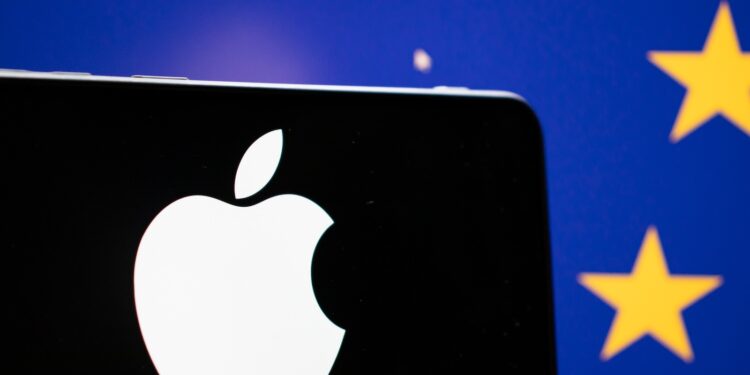Apple has officially appealed a €500 million fine imposed by the European Commission for alleged violations of the Digital Markets Act (DMA). The company believes the EU's actions are excessive and unjustified. The focus is on the App Store, its rules, and the question of how far regulation can go.
If you use an iPhone or work with the App Store as a developer, this dispute directly affects you. The EU claims to be reshaping digital competition in Europe. But many are wondering whether it's overreaching – especially in the case of Apple. The company has opened up the App Store several times in recent years and adapted it to new requirements. Nevertheless, the Commission is once again accusing it of a lack of cooperation. Apple is now firmly challenging this – in court.
What the punishment is about
In April, the EU Commission imposed a €500 million fine on Apple. The allegation was that Apple had prohibited developers from informing users about alternative payment methods – so-called anti-steering guidelines – for too long. According to the Commission, Apple had thus violated key provisions of the DMA. Brussels justified the amount of the fine with the duration and alleged severity of the violations. Apple, however, strongly rejects the allegation. It has continuously adapted the rules to the changing requirements – sometimes at great expense and with significant impacts on the platform structure. The Commission does not sufficiently recognize this.
What changes Apple has made
As early as March 2024, Apple announced far-reaching changes in the EU:
- Introduction of alternative app marketplaces
- Allowing third-party browser engines
- new terms and conditions for developers
Further adjustments followed in June of this year. Developers in the EU are now allowed to point to alternative in-app payments, provide links to external payment services, and even advertise alternative app stores. These steps were not taken out of conviction, but because Apple would otherwise have faced daily fines. In a statement, the company emphasized that this is a regulatory requirement—not a voluntary strategic decision.
Criticism of the EU: Existing rules constantly changing
Apple criticizes the EU for repeatedly making adjustments throughout the entire process. According to Apple, the term "steering" has been gradually expanded to include web views, advertising, alternative stores, and even apps outside the App Store. This creates uncertainty for developers and increases complexity for users. Apple sees this not as genuine consumer friendliness, but rather as a regulatory experiment with global platform infrastructure.
The store service fee and its new structure
Another point of contention is the Store Service Fee. Apple introduced this in 2024 for developers using alternative distribution channels. It was originally set at:
- 10 % under alternative conditions
- 5 % for small businesses
- 20 % under standard conditions
- 7 % for small developers in the standard model
Under pressure from the EU, this became a two-stage model:
- Tier 1: 5 % Fee: Applies to basic services such as app distribution, updates, and security.
- Tier 2: 13 % fee (10 % for small businesses and longer subscriptions): Includes additional services, such as better visibility in the store and app discovery.
Apple didn't come up with these tiers voluntarily. The EU specifically stipulated which services fall into which fee brackets—for example, all discovery features must be included in the more expensive Tier 2. Apple sees this as an artificial split that is neither technically necessary nor economically viable.
Appeal out of principle – and to protect the model
Apple filed an appeal against the fine on July 7, 2025. The statement states that the EU's requirements go far beyond what the DMA actually requires. It's not about mere competition protection, but rather about patronizing Apple in key issues of platform governance. This harms developers – and, in the long run, you as a user. Apple argues that it has made many adjustments, but the Commission refuses to recognize them. Instead, it is constantly making adjustments without a clear direction. This makes sustainable planning impossible.
Apple demands clarity: What can regulation achieve?
Apple is taking legal action – not out of spite, but because fundamental questions are at stake. How far can regulation intervene without stifling innovation? Who determines the structure, functions, and business models of global platforms? And how much bureaucracy can a market based on speed, scale, and user experience tolerate? For you as a user or developer, this dispute means uncertainty. What's permitted today can be prohibited tomorrow. Apple has moved – with noticeable changes to the App Store. Now it's the EU's turn to declare how much control it wants to leave to companies like Apple. The case will have a signal effect across Europe – for the future of the app market, not just in Brussels. (Image: Shutterstock / daily_creativity)
- Apple postpones new features for users in the EU
- Apple under pressure: US antitrust lawsuit remains in place





